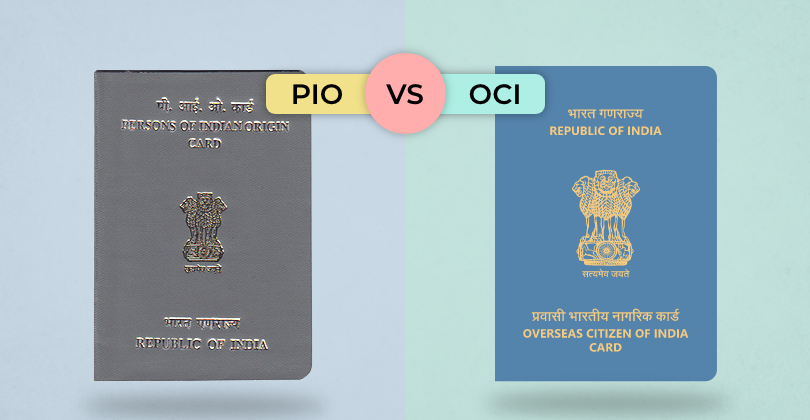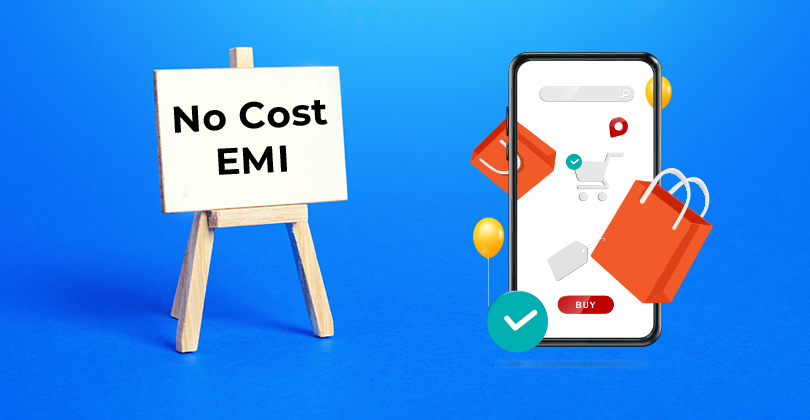Are you of Indian origin and living abroad? You've probably come across terms like PIO and OCI. These cards offer different benefits, but it can
Starting your own travel company can be a thrilling endeavour, and may often require a substantial initial investment. From acquiring the necessary technology and equipment to marketing and operational costs, the financial expense can be significant. To bridge this financial gap and bring your travel business dreams to life, securing a personal loan for travel can be a viable solution.
In this article, we will explore various avenues to obtain financing for your travel company, emphasising the importance of proper planning and due diligence.
Business Plan: The Foundation of Your Journey
Before you approach any financial institution for a personal loan for travel, it is crucial to develop a comprehensive business plan. A well-structured business plan not only serves as your roadmap for the business but also instils confidence in potential lenders. It should include:
-
A detailed description of your travel company, its mission, and vision.
-
Market research and analysis to identify your target audience and competition.
-
Financial projections, including expected revenue and expenses for the first few years.
-
Marketing and sales strategies to attract clients and grow your customer base.
-
Information about your team, including their qualifications and roles.
-
Legal structure and compliance with regulations in the travel industry.
A well-thought-out business plan demonstrates your commitment and capability to make the venture successful, making it more appealing to lenders.
Types of Loans Available
Once you have a solid business plan in place, it is time to explore the various types of loans available to finance your travel company:
-
Traditional Bank Loans: These are loans offered by traditional banks, and they typically require a good credit history, collateral, and a well-established business. The advantage of these loans is lower interest rates and longer repayment terms. For personal loans, it's crucial to check for moratorium options, which can provide temporary relief from repayments in specific circumstances.
-
Online Lenders: Online lenders, including peer-to-peer lending platforms and alternative lenders, have become increasingly popular. They may have more relaxed requirements and offer quicker approval processes, but they often come with higher interest rates.
-
Equipment Loans: If your travel company requires specific equipment like vehicles, you can explore equipment financing options. These loans use the equipment as collateral, making it easier to secure financing.
-
Line of Credit: A business line of credit is a flexible option that allows you to borrow up to a predetermined limit. You only pay interest on the amount you use, making it a cost-effective choice for managing working capital.
-
Microloans: These are small, short-term loans offered by nonprofit lenders and community development organisations. While they may not cover all your startup costs, they can provide a helpful injection of capital.
The Role of Personal Credit
Your personal credit score plays a crucial role in securing a loan for your travel company. Lenders often use your personal credit history as an estimate of your creditworthiness, especially if your business is new and lacks a credit history of its own.
To improve your personal creditworthiness:
-
Pay bills on time.
-
Reduce outstanding debt.
-
Maintain a low credit utilisation ratio.
-
Check your credit report for errors and dispute any inaccuracies.
-
Avoid opening new credit accounts right before applying for a business loan.
Collateral and Guarantees
Collateral is an asset that you pledge as security for a personal loan. If you fail to repay the loan, the lender has the right to take possession of the collateral. Collateral can significantly increase your chances of securing a loan, as it reduces the lender's risk.
Common types of collateral for travel companies may include:
-
Vehicles: If your business involves transportation, such as tour buses or rental vehicles, these can be used as collateral for an equipment loan.
-
Real Estate: If you own property, it can be leveraged as collateral for a loan.
-
Accounts Receivable: If you have outstanding invoices, they can be used as collateral in some financing arrangements.
Personal guarantees are also common in the business loan application process. When you provide a personal guarantee, you are personally responsible for repaying the loan if your business cannot. This can be a significant commitment and risk, so it is important to consider the implications carefully.
Networking and Building Relationships
Building relationships within the financial community can help your travel company access loans more easily. Establish connections with local banks, credit unions, and community organisations. Attend business networking events and engage with professionals who can introduce you to potential lenders. Additionally, consider joining industry associations and groups as they can provide valuable networking opportunities.
Government Grants and Programs
Many governments offer grants and programs to support small businesses in various industries, including travel. These grants do not need to be repaid, making them an attractive source of funding. Research government grants and programs available in your region or country and ensure you meet the eligibility criteria.
Venture Capital and Angel Investors
While not traditional loans, venture capital and angel investors can provide substantial funding for your travel company in exchange for equity or ownership shares. This option is best suited for high-growth startups with a unique and scalable business model. Be prepared to pitch your business idea convincingly and be willing to give up a portion of ownership.
Crowdfunding
Crowdfunding has emerged as a popular way to raise funds for businesses in recent years. Platforms like Kickstarter and Indiegogo allow you to present your business idea to the public, who can choose to fund your project. In return, you may offer rewards or equity. Crowdfunding is a unique and innovative way to secure funds, but it requires effective marketing and a compelling pitch to attract backers.
Loan Application Process
Once you've identified the type of loan that suits your travel company's needs, it is time to start the application process. Here are some general steps to follow:
-
Gather Documentation: Prepare all the necessary documents, including your business plan, financial statements, personal and business tax returns, bank statements, and any collateral information.
-
Choose a Lender: Select a lender that aligns with your business's needs and goals. Approach multiple lenders to compare loan terms and interest rates.
-
Complete the Application: Fill out the loan application and provide all required information and documentation accurately.
-
Wait for Approval: The lender will review your application and assess your creditworthiness. This process may take several weeks, so be patient.
-
Negotiate Terms: Once you receive an offer, you can negotiate the terms to ensure they align with your business plan and financial capacity.
-
Sign the Agreement: After negotiations, sign the loan agreement and adhere to the terms and conditions.
Managing Loan Funds
Securing a loan is a significant milestone, but it also comes with responsibility. Here are some tips for managing loan funds wisely:
-
Keep Detailed Records: Maintain thorough financial records, tracking all expenditures and income to ensure you stay on budget.
-
Use the Funds Wisely: Spend the loan proceeds on the business expenses outlined in your business plan. Avoid personal use or frivolous spending.
-
Monitor Cash Flow: Regularly monitor your cash flow to ensure that you can make loan payments and meet other financial obligations.
-
Repay Promptly: Make loan payments on time to maintain a positive credit history and strengthen your business's financial health.
-
Adjust the Plan as Needed: Be prepared to adjust your business plan and strategies if market conditions change or unexpected challenges arise.
Conclusion
Starting your own travel company is an exciting endeavour, and securing a loan can be the key to turning your dreams into reality. With a well-thought-out business plan, strong personal credit, and the right financial partners, you can obtain the necessary funds to launch and grow your travel business.
Remember that careful planning, diligent research, and responsible financial management are essential elements in ensuring your travel company's long-term success. By following these steps and taking the right approach, you can set your travel company on the path to success.
AUTHOR
KreditBee As a market leader in the Fintech industry, we strive to bring you the best information to help you manage finances better. These blogs aim to make complicated monetary matters a whole lot simpler.







